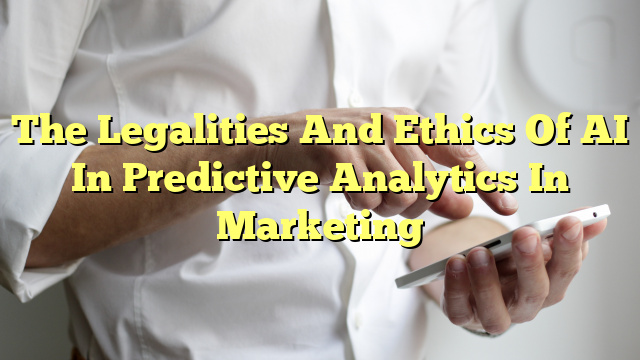Table of Contents
Ethics of Using AI in Marketing
AI technology has revolutionized the field of marketing, enabling businesses to analyze vast amounts of data and make predictions about consumer behavior. However, the use of AI in marketing raises ethical concerns.
One ethical consideration is the potential for AI algorithms to discriminate against certain groups of people. If the data used to train the AI system is biased, it can lead to discriminatory outcomes in marketing campaigns. For example, if an AI system is trained on historical data that reflects societal biases, it may perpetuate those biases in its recommendations and targeting.
Another ethical issue is the invasion of privacy. AI systems often rely on collecting and analyzing personal data to make predictions about individuals. This raises concerns about data security and the potential for misuse of personal information.
Additionally, there is the issue of transparency. AI algorithms can be complex and difficult to understand, making it challenging for marketers to explain the reasoning behind their decisions. This lack of transparency can erode trust between businesses and consumers.
Ethical Considerations in Predictive Analytics
Predictive analytics involves using historical data to make predictions about future outcomes. While this can be a powerful tool for marketers, it also raises ethical considerations.
One ethical concern is the potential for predictive analytics to reinforce existing inequalities. If the data used to train the predictive models reflects societal biases, the predictions made by the models may perpetuate those biases. For example, if a predictive model is trained on data that shows a certain group of people are less likely to respond to a marketing campaign, it may lead to those individuals being excluded from future campaigns.
Another ethical consideration is the accuracy of predictive analytics. AI algorithms are not infallible, and there is always the risk of false positives and false negatives. This can lead to unfair treatment of individuals based on faulty predictions.
Ethical and Legal Considerations in AI
When it comes to AI, there are both ethical and legal considerations that marketers need to be aware of.
From an ethical standpoint, there is the issue of accountability. If an AI system makes a mistake or produces biased outcomes, who is responsible? Should it be the developers, the business using the AI, or the AI system itself? Establishing clear lines of accountability is essential.
Legally, there are also considerations around data protection and privacy. Marketers need to ensure that they are complying with relevant data protection laws and obtaining proper consent from individuals before collecting and using their personal data.
Ethical Issues Relating to the Use of AI
Beyond the specific considerations in marketing and predictive analytics, there are broader ethical issues relating to the use of AI.
One such issue is job displacement. As AI technology advances, there is the potential for job losses in certain industries. This raises questions about the ethical responsibility of businesses and governments to support workers who may be negatively affected by AI.
Another ethical concern is the potential for AI to be used for malicious purposes. AI systems can be vulnerable to manipulation and can be used to spread misinformation or engage in harmful activities. Ensuring the ethical use of AI requires robust safeguards and regulations.

